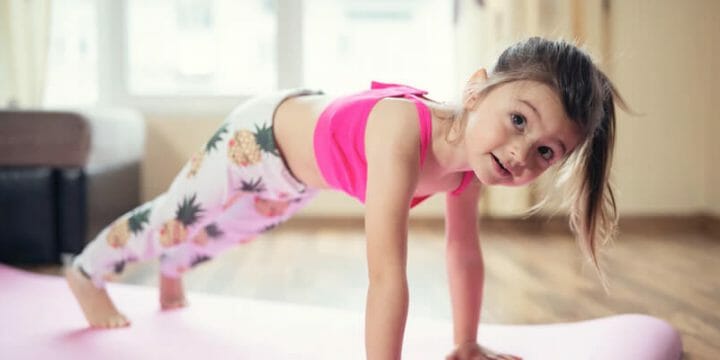As a fitness instructor, I’ve noticed people tend to prize calf size and shape when it comes to lower body aesthetics.
Those who have worked on these areas will probably agree that losing calf fat or gaining calf muscle is a tricky business.
Toning and building up your calves should be an integral part of your training because they provide strength and stability when performing physical activities. From an aesthetic point of view, they give the legs a “finishing touch.”
This article will give you tips on how to lose calf fat and shape calf muscles.
Quick Summary
Tips To Lose Calf Fat

In my experience coaching clients, a personalized workout plan is crucial to losing calf fat.
I've seen clients with naturally muscular calves benefit from low-intensity cardio like walking, while others aiming for a dramatic transformation do better with toning exercises.
In both cases, starting with basic stretches and myofascial work to loosen the calf muscles has proven effective.
 Foam Rolling
Foam Rolling
In my practice, I've found foam rolling with a roller or lacrosse ball extremely beneficial for loosening calves and enhancing mobility.
From personal use and observation, sitting with legs outstretched and rolling the calves, while a bit uncomfortable, can significantly improve flexibility.
This method, focusing on one calf at a time for a deeper effect, is vital before intensive calf workouts, as I've learned through both research and hands-on experience.
Cardio
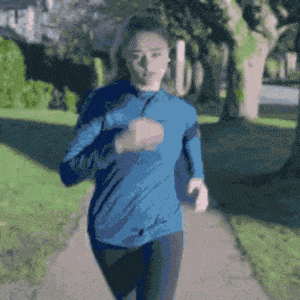 Based on my experience, those aiming for slimmer calves or increased muscle should commit to at least 150 minutes of cardio weekly, including activities like brisk walking, running, cycling, and jumping rope.
Based on my experience, those aiming for slimmer calves or increased muscle should commit to at least 150 minutes of cardio weekly, including activities like brisk walking, running, cycling, and jumping rope.
While cardio doesn't target calf fat directly (no spot reduction, unfortunately), it's effective for overall fat loss and calf strengthening.
For muscle growth, I always recommend clients prioritize their calves in weight training sessions.

Exercises to Tone and Strengthen Calves
Below are some of the best exercises to tone and strengthen your calves and aid with weight loss.
Donkey Calf-Raises
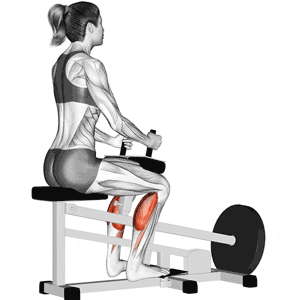
These are the most effective calf exercises to increase your calf muscle size and definition.
- Stand facing a railing or platform with an aerobic step or weight plate under your feet.
- Bend over and grab the platform with a barbell or plate on your back.
- Lower your heels down, then raise up on your toes, feeling the burn.
 Standing Calf-Raises
Standing Calf-Raises
- Similar to donkey raises, but stand up straight.
- Push up and down on your toes, with or without a dumbbell.
 Weighted Seated Calf Raises
Weighted Seated Calf Raises
- Sit with weights on your quads.
- Squeeze those calves and lift your heels high.
 Plie Calf Raises
Plie Calf Raises
- Start in a sumo squat stance, toes out.
- Squat down, then lift your heels, squeezing those calves.
 Weighted Sumo Squat With Calf Raise
Weighted Sumo Squat With Calf Raise
Like the plie raise, but holding a dumbbell, squat and lift your heels.
Jump Squats
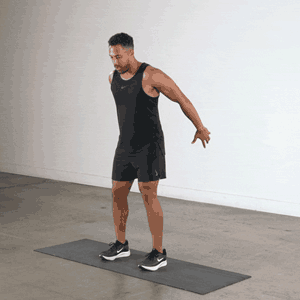
Jump squats are part of a total-body workout and are great to incorporate into your HIIT cardio session or to warm up before a heavy lifting session.
- Feet shoulder-width, squat down with a straight back.
- Jump up, landing softly, and engage your calves and thighs.
 Single-Leg Squats
Single-Leg Squats
These are extremely challenging and are recommended for those who are already good with squats.
- Lift one leg and squat on the other.
- Keep your balance and work both legs equally.
The above are fantastic workouts for the lower legs.
I highly recommend doing other exercises for your legs so as to develop a balanced physique.
Calf Stretch
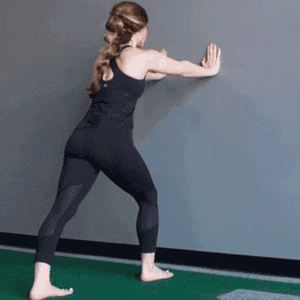 Post-workout, whether it's weight training or cardio, stretching your calves is key.
Post-workout, whether it's weight training or cardio, stretching your calves is key.
If your calves seem bulky, stretching helps them chill out and loosen up. Remember, these exercises are ace for muscle building and shedding pounds since they're compound moves.
But don't expect instant beefy calves; it's a long game of consistent training.
Diet and Lifestyle Tips to Lose Calf Fat
Besides exercise, perhaps the more crucial aspect of slimming those calves is maintaining a healthy diet and embracing a healthy lifestyle.
Keep Your Diet in Check
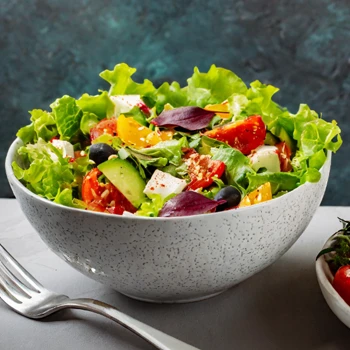
From my experience as a coach, the adage "You are what you eat" is particularly relevant for calf fat.
I advise clients to avoid high-calorie foods like pizza and processed carbs and instead focus on fruits, nuts, grains, and lean proteins.
Reducing calorie intake and avoiding sodium-rich or inflammatory foods is key, as these can contribute to calf bulkiness.
Drink Lots of Water
Chugging water boosts metabolism - a 2003 study confirmed a 30% increase after drinking 500 ml of water [1]. Aim for eight glasses daily for top results.
Exercise and Proper Rest
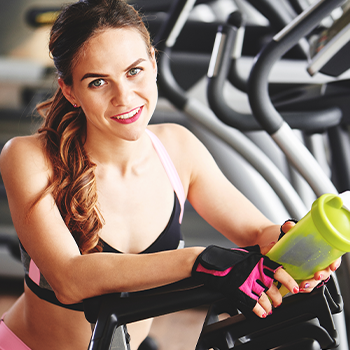
Muscle-building and weight loss need both exercise and rest.
If you're after slimmer calves, avoid calf-specific workouts (especially weighted).
Remember, you can't pick where to lose fat – your body decides.
So, cardio and moderate resistance training are your best bets for overall fat loss, including in the calves.
What Causes Fat Calves?
Many individuals grapple with self-esteem issues linked to the size of their calves, frequently feeling self-conscious when wearing shorts or skirts.
Understanding the underlying reasons is key; typically, there are three primary factors contributing to larger calf muscles.
Being Overweight or Obese
Fat distribution varies per person. Some have more calf fat, but big calves can also mean more muscle, especially in non-obese folks.
A recent study published in the Journal of Sports Medicine and Physical Fitness showed that calf circumference is positively correlated with calf muscle thickness and negatively correlated with fat thickness in non-obese adults [2].
Poor Lifestyle Choices
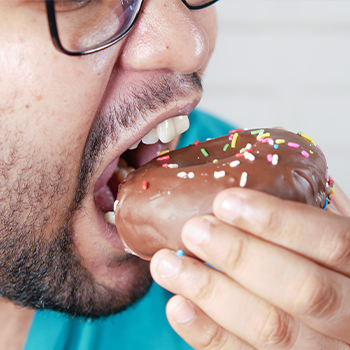
Prolonged sitting or standing or a diet high in salt could lead to fluid buildup, making calves look larger.
According to the FDA, the average American consumes 3,400 mg of sodium every day, and that’s more than the daily recommended intake [3].
Lipedema
Mostly affecting women, lipedema causes fat to accumulate in the lower legs. It can be hereditary and needs treatment to manage symptoms, based on research from the American Journal of Medical Genetics [4].
There are many ways to treat lipedema. The three most effective methods are:
- Lifestyle Changes: Eating a healthy diet, drinking lots of water, and doing low-impact exercises
- Therapy: Decongestive therapy and compression therapy
- Surgery: Liposuction
FAQs
Are My Calves Made of Muscle or Fat?
A simple test to determine this is to flex your calf muscle as hard as you can. The hard stuff is muscle; the soft stuff is fat.
Does Walking Help Lose Calf Fat?
Yes, walking is one of the best ways to lose weight and achieve slimmer calves.
Unfortunately, walking alone will not target the calves. Remember that there is no such thing as spot fat removal. Losing fat on your calves will depend on when and where your body decides to get rid of the fat.
References:
- https://pubmed.ncbi.nlm.nih.gov/14671205/
- https://pubmed.ncbi.nlm.nih.gov/33687177/
- https://www.fda.gov/food/nutrition-education-resources-materials/sodium-your-diet
- https://pubmed.ncbi.nlm.nih.gov/20358611/
About The Author
You May Also Like
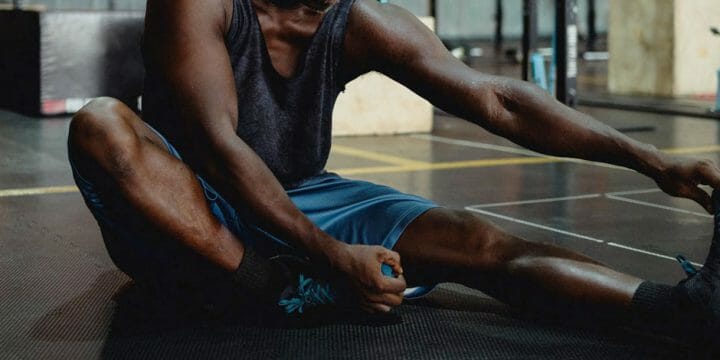

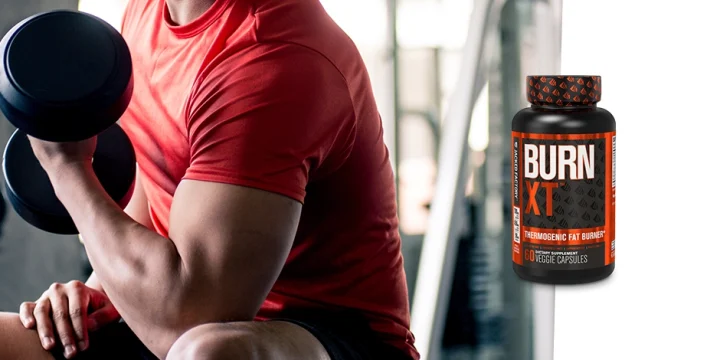
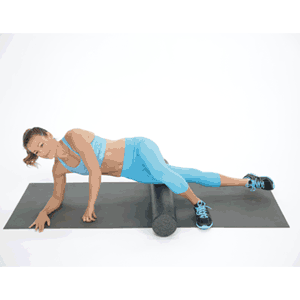 Foam Rolling
Foam Rolling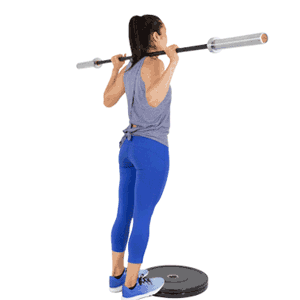 Standing Calf-Raises
Standing Calf-Raises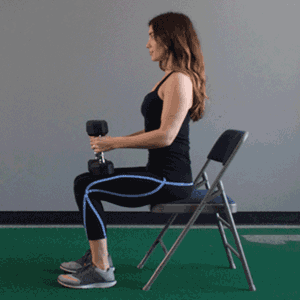 Weighted Seated Calf Raises
Weighted Seated Calf Raises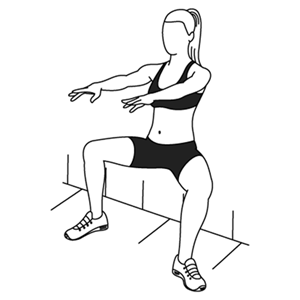 Plie Calf Raises
Plie Calf Raises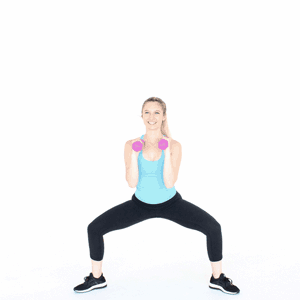 Weighted Sumo Squat With Calf Raise
Weighted Sumo Squat With Calf Raise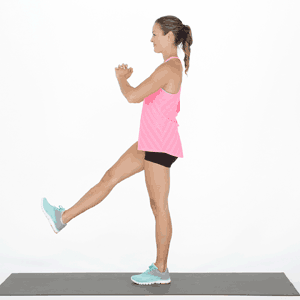 Single-Leg Squats
Single-Leg Squats